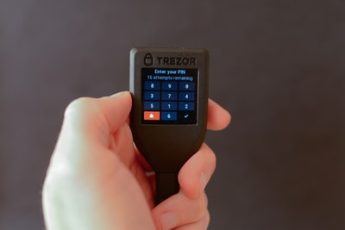Identity fraud appears to be getting more sophisticated by the day. More money is lost yearly to these fraudsters by unwary members of the public.
Identity fraud occurs when someone’s personal details are obtained by someone who, by impersonation carries out a transaction at a victim’s expense which may run into several thousands of dollars. Victims are usually victimized when they are contacted or visited by perpetrators who use some tricks or stratagems to obtain details vital to obtaining or maintaining their existing identity.

By 2006, identity theft had become one of the fastest growing U.S. crimes, according to the U.S. Department of Justice. From 2003 to 2005, the number of victims identified during a fraud scam increased from 230,628 in 2003 to 1,330,426 in 2005.
These figures are alarming because by victims, mostly adults, the average loss per case was $4.8 million in 2005, according to data from the FBI. Adult victims placed an average of $11.8 million at risk per crime, which is more than twice the $2.8 million average loss per victim which the combined reported cases of all other reported crimes combined.
The over-18 crime total in the U.S. is approximately 22% higher than the number of adult victims of identity theft in the over-18 years of the country.
The chances are that your personal details, including your name, address, and age, have been catalogued by one of the many identity theft websites available on the Internet. If your information has been sold to a proliferating website, then you may be one of the lucky ones to escape unscathed. The Internet, with its global networking capabilities, offers perpetrators worldwide a convenient channel to reuse stolen details from previous victims in order to exploit them.
When queries about your nationality, gender, and other personal information leading to websites about country travel agencies offering cheap travel packages that include accommodation and transportation there are a few things you should beware of.
* The travel agency may be a fake travel agency that is actually after your money. I have personally seen this happen to a visiting American journalist who had to cancel his credit card to catch a flight to his destination in order to catch a break with his writers.
* The e-mail claiming to be from the travel agency may be the work of the Internet Spammers who are behind many of these attacks. They normally use an e-mail address likeserververify@ orsomething.com. Even if it is from somewhere like Nigeria, they will put the email address somewhere in the U.S. Such web addresses are easy to find with a little research. They might start with server verify(support@), but after a few variations they move on to another one of the common U.S. based servers likehttp://www.us.com.
* The Web address that is embedded in the email may look legitimate, but it isn’t. I have seen bogus web addresses that are close to the real one, but not quite. Just because the address looks good, doesn’t make it so. If you type in the address, look at the company name and also at the bottom of the browser when the bookmark is clicked on. ‘Microsoft’ is the most Professional of the lot. When you submit the form to the web site, they will, of course, save the information away for you, but they may also have added adware to your computer, or other junk that you really did not want.
So, if you want to check the legitimacy of a link, print the original from the Web site that the link is said to be coming from. If it looks questionable, then the issue is probably in your eyes and not the link.
Sometimes, it is not even enough to check the URL. If the link does not bring you to what you think is the proper website, try running a search on the name of the link. You may find that you already have a bad experience with this link.
The other part of your security equipment includes an anti-virus software program and a software program that labels as phishing. These are independent from the link that you clicked. The software program that labels as phishing may capture your data, even though it was not forwarded to you by a malicious website.
Your firewall and anti-virus software may not be enough to protect you. What you really need is a program that lets you customize security protection for your computer. This program allows you to define how much security you want to have for your PC. It can be set to check all incoming and outgoing email and link them to your accounts. It can prevent fraudulent websites from trying to get on your computer and it can help you remove viruses that may be on your computer.
Why should you use a program like this?













